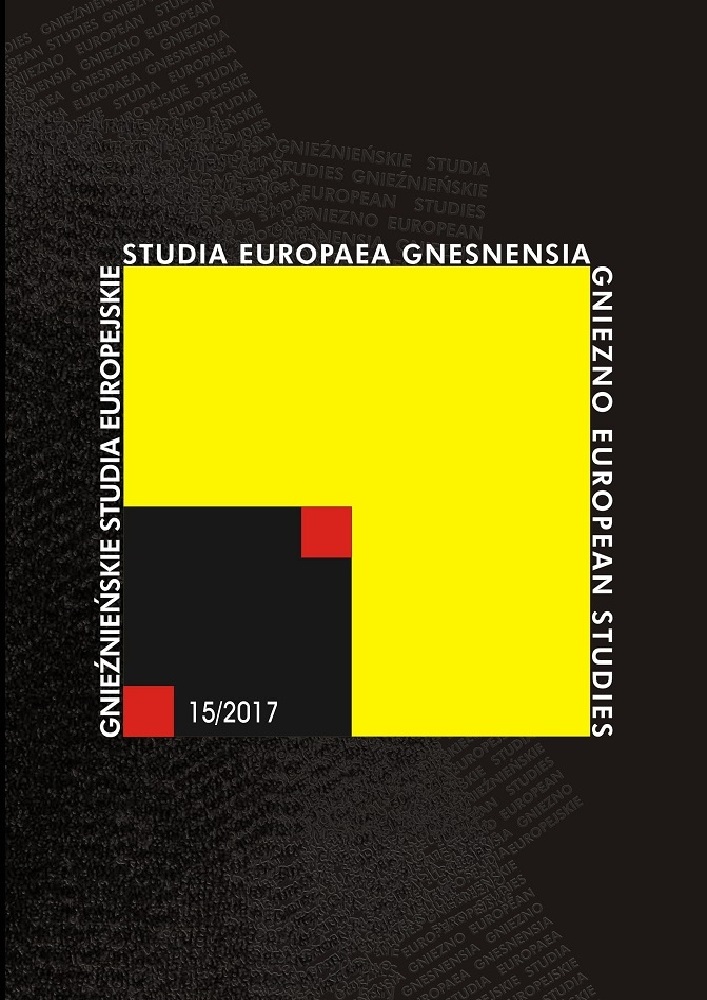Abstract
The aim of the paper is to compile a list of typical complaints that a Greek soldier of the Classical period might have had. For that purpose, the author analyses the great war narratives of that time: Histories by Herodotus, History of the Peloponnesian War by Thucydides Xenophon’s Hellenica, Anabasis, and Agesilaus.
Riferimenti bibliografici
Arnould D., Guerre et paix dans la poésie grecque: de Callinos à Pindare, New York 1981.
Brink L., Soldiers in Luke-Acts. Engaging, Contradicting, and Transcending the Stereotypes, Berlin 2014.
Borgeaud P., Recherches sur le dieu Pan, Rome 1979.
Dalby A., Greek Abroad: Social Organization and Food among the Ten Thousand, Journal of Hellenic Studies 112, 1992, s. 16-30.
De Romilly J., La crainte dans l’oeuvre de Thucydide, Classica et Mediaevalia 17, 1956, s. 119-127.
Dowden K., Trojan Night, [w:] M. Christopoulos, E.D. Karakantza, O. Levaniouk (red.), Light and Darkness in Ancient Greeks Myths and Religion, Lanham 2010, s. 110-120.
Fink D.L., The Battle of Marathon in Scholarsh ip. Research, Theories and Controversies since 1850, Jefferson 2014.
Gabriel R.A., Soldiers’ Lives Through History. The Ancient World, Westport-Connecticut--London 2007.
Gabriel R.A., Man and Wound in the Ancient World. A History of Military Medicine from Sumer to the Fall of Constantinople, Washington 2012.
Gabriel R.A., The Madness of Alexander the Great and the Myth of Military Genius, Barnsley 2015.
Gera D.L., Xenophon’s Cyropaedia. Style, Genre, and Literary Technique, Oxford 1993.
Głombiowski K., Ksenofont: żołnierz i pisarz, Wrocław 1993.
Goldsworthy A.K., The Othismos, Myths and Heresies: The Nature of Hoplite Battle, War in History 4, 1997, s. 1-26.
Hanson V.D., The Western Way of War. Infantry Battle in Classical Greece, Berkeley-Los Angeles 1989.
Hanson V.D., Hoplite Technology in Phalanx Battle, [w:] V.D. Hanson (red.), Hoplites, The Classical Greek Battle Experience, London-New York 1991, s. 63-84.
Hanson V.D., The Other Greeks: The Family Farm and the Agrarian Roots of Western Civilization, New York 1995.
Hornblower S., A Commentary on Thucydides, Oxford 1996.
Hunt P., Warfare, [w:] A. Rengakos, A. Tsakmakis (red.), Brill’s Companions to Thucydides, Kent 2006, s. 385-414.
Keegan J., The Face of Battle, New York 1976.
Kiesling E.C., The Oldest „New” Military Historians: Herodotus, W.G. Forrest, and the Historiography of War, [w:] P. Derow, R. Parker (red.), Herodotus and His World. Essays from a Conference in Memory of George Forrest, Oxford 2003, s. 88-102.
Konstan D., The Emotions of the Ancient Greeks: Studies in Aristotle and Classical Literature, Toronto-Buffalo-London 2006.
Konstan D., Combat Trauma: The Missing Diagnosis in Ancient Greece?, [w:] P. Meineck, D. Konstan (red.), Combat Trauma and the Ancient Greeks, New York 2014, s. 1-13.
Kostuch L., Fetor na helleńskim polu bitwy. Starożytni autorzy greccy wobec problemu, Studia Historica Gedanensia 1, 2010, s. 11-18.
Kostuch L., Przyczynek do „hoplickiego piekła”. Słońce w helleńskiej narracji wojennej, Zeszyty Naukowe Uniwersytetu Jagiellońskiego. Prace Historyczne 142, 2015, s. 1-11.
Krentz P., Casualities in Hoplite Battles, Greek, Roman and Byzantine Studies 26, 1985, s. 13-20.
Krentz P., Fighting by the Rules. The Invention of the Hoplite Agôn, Hesperia 71, 2002, s. 23-39.
Krentz P., War, [w:] P. Sabin, H. van Wees, M. Whitby (red.), The Cambridge History of Greek and Roman Warfare, 1: Greece, the Hellenistic World and the Rise of Rome, Cambridge 2008, s. 147-185
Krentz P., Hoplite Hell: How Hoplites Fought, [w:] D. Kagan, G.F. Viggiano (red.), Men of Bronze. Hoplite Warfare in Ancient Greece, Princeton 2013, s. 134-156.
Lazenby J., The Killing Zone, [w:] V.D. Hanson (red.), Hoplites, The Classical Greek Battle Experience, London-New York 1991, s. 87-109.
Lazenby J. F., The Defence of Greece, 490-479 B.C., Warminster 1993.
Lateiner D., Tears and Crying in Hellenistic Historiography: Dacryology from Herodotus to Polybius, [w:] T. Fögen (red.), Tears in Graeco-Roman World, Berlin 2009, s. 105-134.
Lee J.W.I., Xenophon’s Anabasis and the Origins of Military Autobiography, [w:] A. Vernon (red.), Arms and the Self: War, the Military, and Autobiographical Discourse, Kent-London 2005, s. 41-60.
Lee J.W.I., A Greek Army on the March. Soldiers and Survival in Xenophon’s Anabasis, Cambridge 2007.
Lendon J.E., Rhetoric of Combat: Greek Military Theory and Roman Culture in Julius Caesar’s Battle Descriptions, Classical Antiquity 18, 1999, s. 273-329.
Loraux N., Les expériences de Tirésias, le féminin et l’homme grec, Paris 1989.
Marincola J., Greek Historians, Cambridge 2006.
Marincola J., Introduction, [w:] J. Marincola (red.), A Companion to Greek and Roman Historiography, Oxford 2007, s. 1-9.
Marincola J., Historians and Homer, [w:] M. Finkelberg (red.), The Homer Encyclopedia, 2011, 2, s.v.
Millett P.C., Writers on War. Part I Greece – Winning Ways in Warfare, [w:] B. Campbell, L.A. Tritle (red.), The Oxford Handbook of Warfare in the Classical World, Oxford 2013, s. 46-73.
Pritchett W.K., The Greek State at War, Berkeley-Los Angeles-London 1971.
Rawlings L., The Ancient Greeks at War, Manchester-New York 2007.
Rood T., The Development of the War Monograph, [w:] J. Marincola (red.), A Companion to Greek and Roman Historiography, Oxford 2007, s. 147-158.
Salazar Ch.F., The Treatment of War Wounds in Graeco-Roman Antiquity, Boston-Leiden 2000.
Stenberg R.H., The Transport of Sick and Wounded Soldiers in Classical Greece, Phoenix 53, 1999, s. 191-205.
Strasburger H., Homer und die Geschichtsschreibung, Heidelberg 1972.
Shay J., Achilles in Vietnam. Combat Trauma and the Undoing of Character, New York 1994.
Tritle L.A., Warfare in Herodotus, [w:] C. Dewald, J. Marincola (red.), The Cambridge Companion to Herodotus, Cambridge 2006, s. 209-223.
Tritle L. A., Men at War, [w:] B. Campbell, L.A. Tritle (red.) The Oxford Handbook of Warfare in the Classical World, Oxford 2013, s. 179-293.
van Wees H., The Homeric Way of War: The „Iliad” and the Hoplite Phalanx (II), Greece and Rome 41, 1994, s. 131-155.
van Wees H., Greek Warfare. Myths and Realities, London 2005.
Vaughn P., The Identification and Retrieval of the Hoplite Battle-Dead, [w:] V.D. Hanson (red.), Hoplites. The Classical Greek Battle Experience, London-New York 1991, s. 38-62.
Wheeler E.L., Polla kena tou polemou: The History of a Greek Proverb, Greek, Roman, and Byzantine Studies 29, 1988, s. 153-184.
Wheeler E.L., The Armies of Classical Greece, Aldershot 2007.
